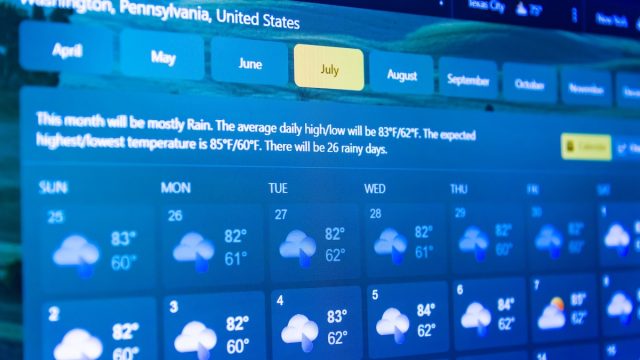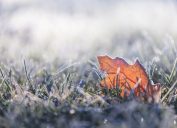Why You Shouldn't Trust Weather Predictions from the Farmer's Almanac
Here's what to look at instead, according to meteorologists.
Since 1812, the Farmer's Almanac has provided annual advice on planting schedules, astronomy, astrology, recipes, and more. However, the periodical is perhaps best known for its weather predictions, which many people take as gospel as they look ahead toward seasons to come. But researchers and meteorologists suggest that the centuries-old resource has little practical value. Read on to find out why you shouldn't trust the Farmer's Almanac—and where to turn for weather predictions instead.
RELATED: Major Hurricanes Intensifying, New Data Shows—Is Your Region in Harm's Way?
Here's how the Farmer's Almanac makes its predictions.
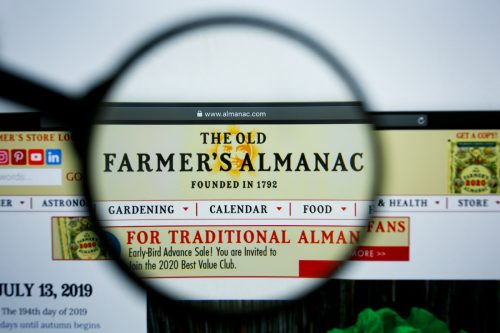
The Farmer's Almanac is notoriously cagey about its methodology for weather predictions and other insights. In fact, they have shared only that they use an "exclusive mathematical and astronomical formula, that relies on sunspot activity, tidal action, planetary position (astrology) and many other factors."
"Their forecasts are not based on science," Andrew Markowitz, a Denver-based meteorologist, said in a recent TikTok video. He adds that besides confusing people about what weather they can expect, inaccurate predictions "erode trust in scientists."
Their system is only 52 percent accurate, one study says.
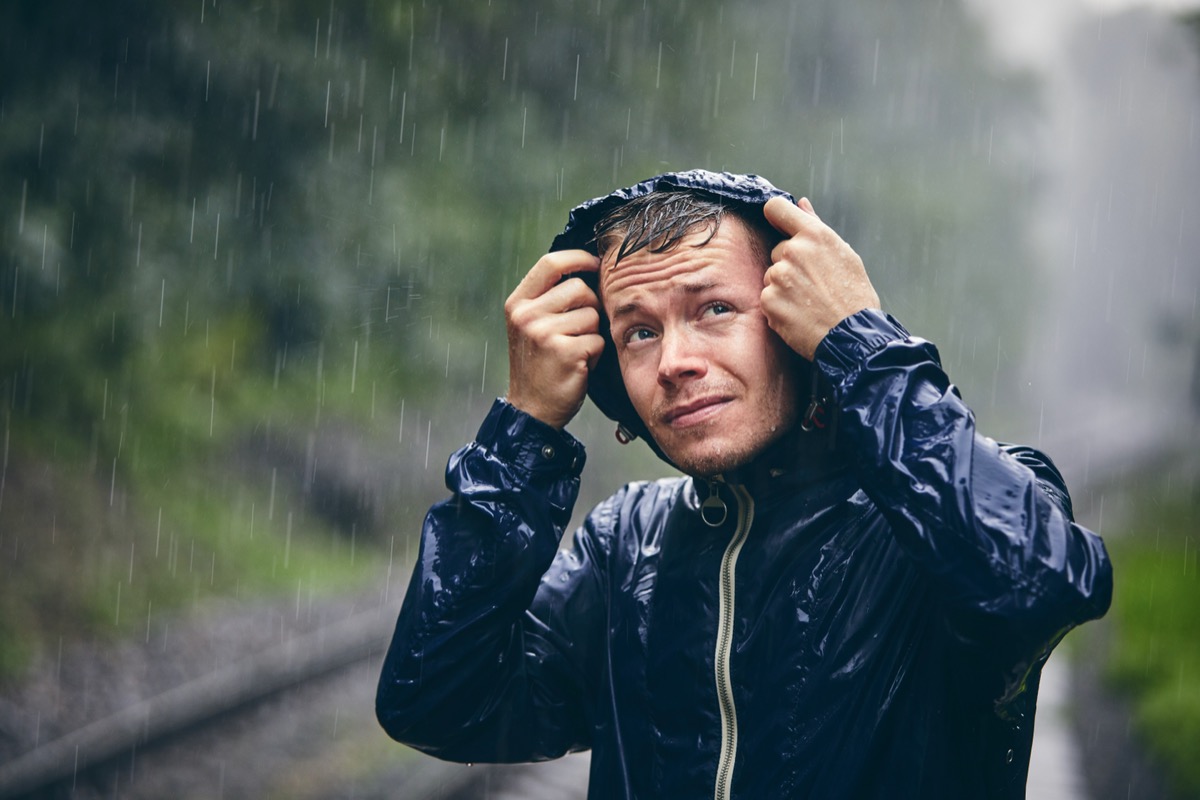
According to a 2010 study from the University of Illinois that compared past years' publications with real weather data, the Farmer's Almanac is only about 52 percent accurate. This debunked the periodical's claim that its weather predictions are roughly 80 percent accurate.
Jonathan Belles, a digital meteorologist with The Weather Company, notes that this renders the information all but useless. "What do you do in that situation? You prepare for both rain and no rain since each has a similar chance of occurring," he says.
RELATED: Where It'll Be Extra Warm This Winter, New Weather Predictions Show.
You can't predict the weather that far in advance, meteorologists say.
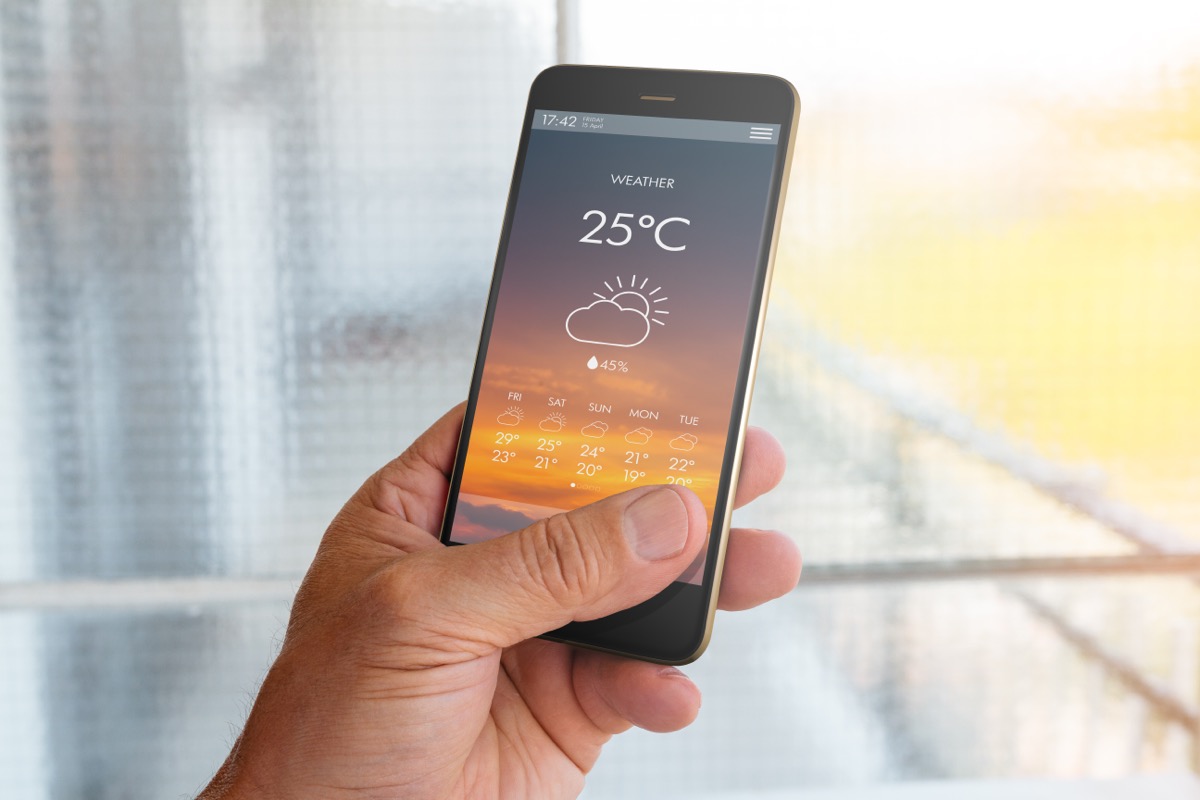
The most glaring problem, several meteorologists say, is that you simply can't accurately predict the weather as far in advance as the Farmer's Almanac does. Some of their predictions are written over a year before they're relevant to the public.
"The thing is, there is so much variability within a season on a daily, weekly, monthly time scale, and that's not something you can predict with accuracy until a week or two in advance—much less six months," says Markowitz.
Meteorologists have a far higher accuracy rate.
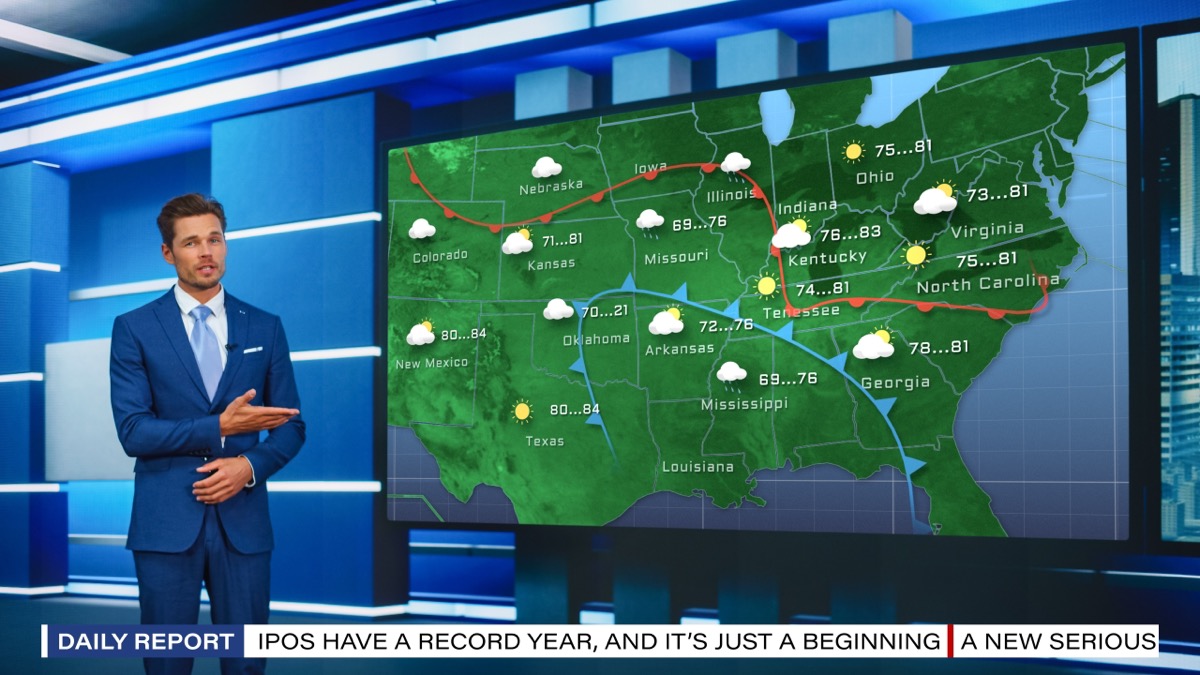
Broadcast meteorologists are often ridiculed for making inaccurate weather predictions, but compared with the Farmer's Almanac, they're far more reliable.
"The Farmer's Almanac is only right about 50 percent of the time with both precipitation and when it comes to temperatures," said Kylie Bearse, another Denver-based meteorologist, in her own recent TikTok post. "Now I know you like to say all the time that I'm wrong for my job—and yes we get it wrong sometimes. But broadcast meteorologists are about 85 percent accurate, so way better than the Farmer's Almanac."
Asked about the Almanac's accuracy for winter in Colorado, she said, "You might as well flip a coin."
RELATED: What a "Historically Strong" El Niño Could Mean for Your Region This Winter.
Here's how they do it.
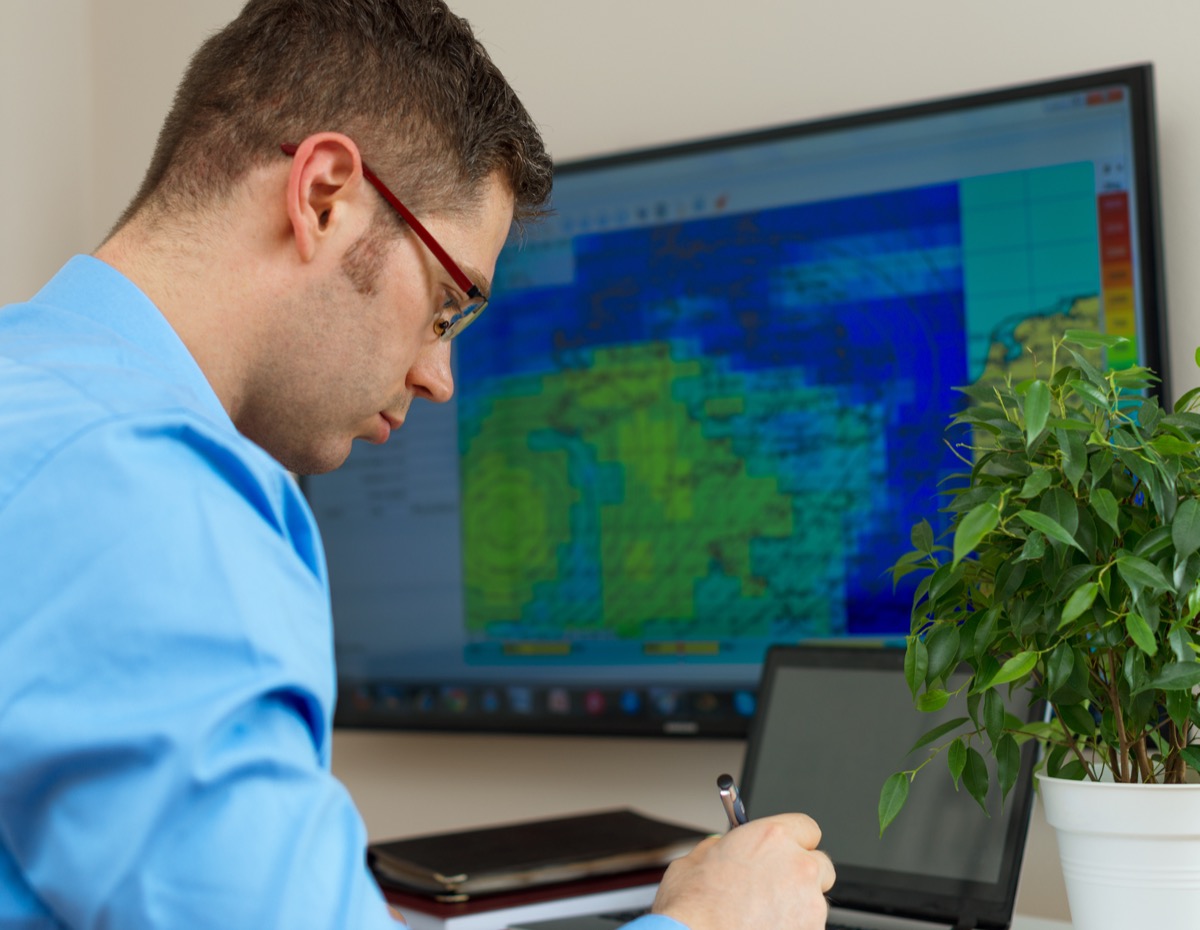
Belles explains that meteorologists have a complex and ever-improving system for predicting the weather. In fact, his own company draws on over 100 artificial intelligence weather models and then combines that data with the analysis of many meteorologists to help people plan for upcoming weather.
"We have numerous tools at our disposal as meteorologists and climatologists to create better forecasts based on science than what the Farmer's Almanac produces each year," Belles tells Best Life. He notes that this year, predictions will rely heavily on El Niño forecasts, ongoing patterns in the jet stream and moisture content, as well as the best computer modeling available.
"Decades of experience, the best modeling on the planet, and millions of data points around the world help us bring the best possible forecast and to improve on that forecast year after year," Belles shares.
So, if you're wondering what the weather will be, skip the Farmer's Almanac and make sure to seek out a reliable weather forecaster. "Please, please, please, vet your sources, and when severe weather strikes, trust your meteorologists," advises Markowitz.
For more advice sent directly to your inbox, sign up for our daily newsletter.
